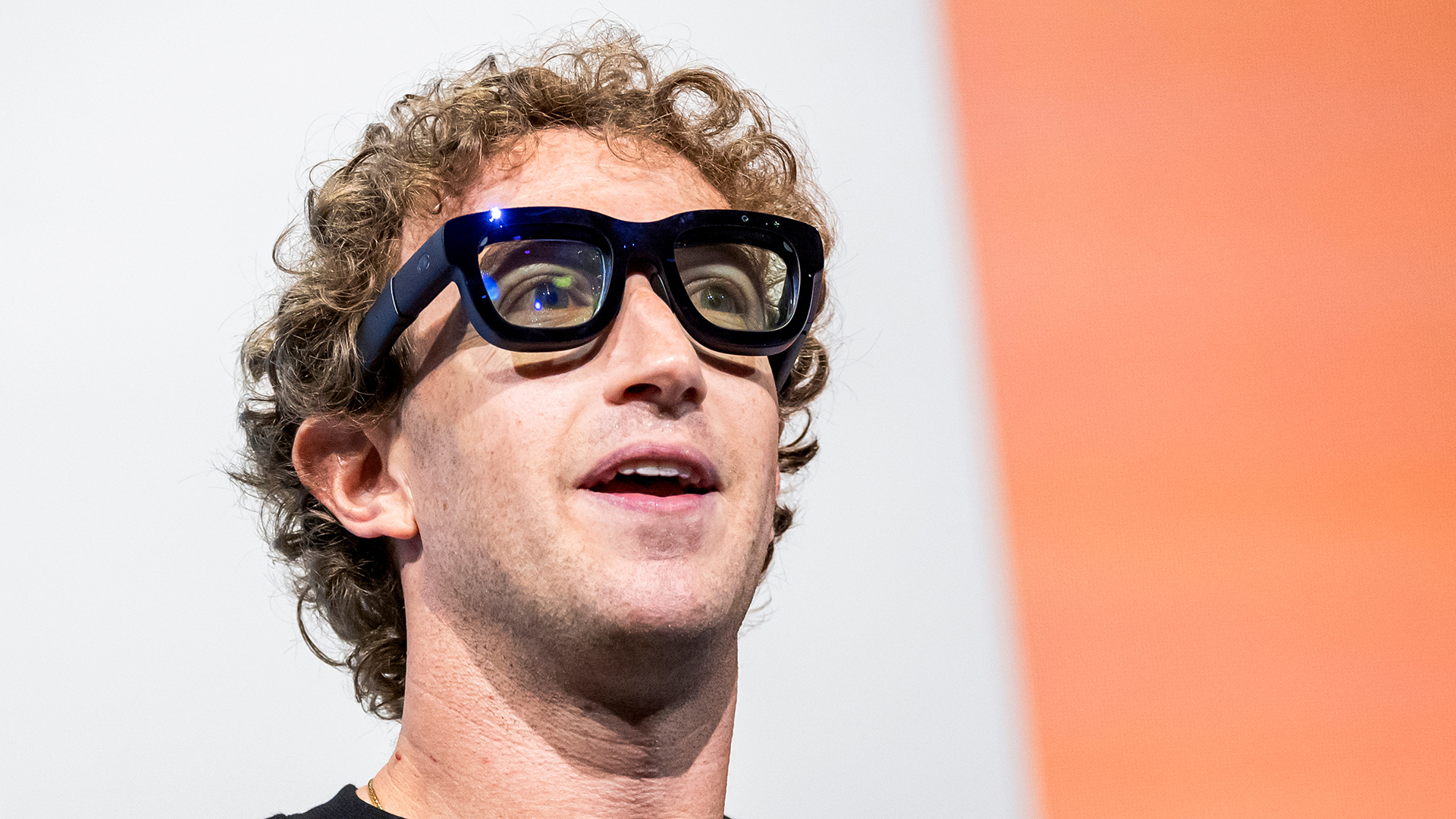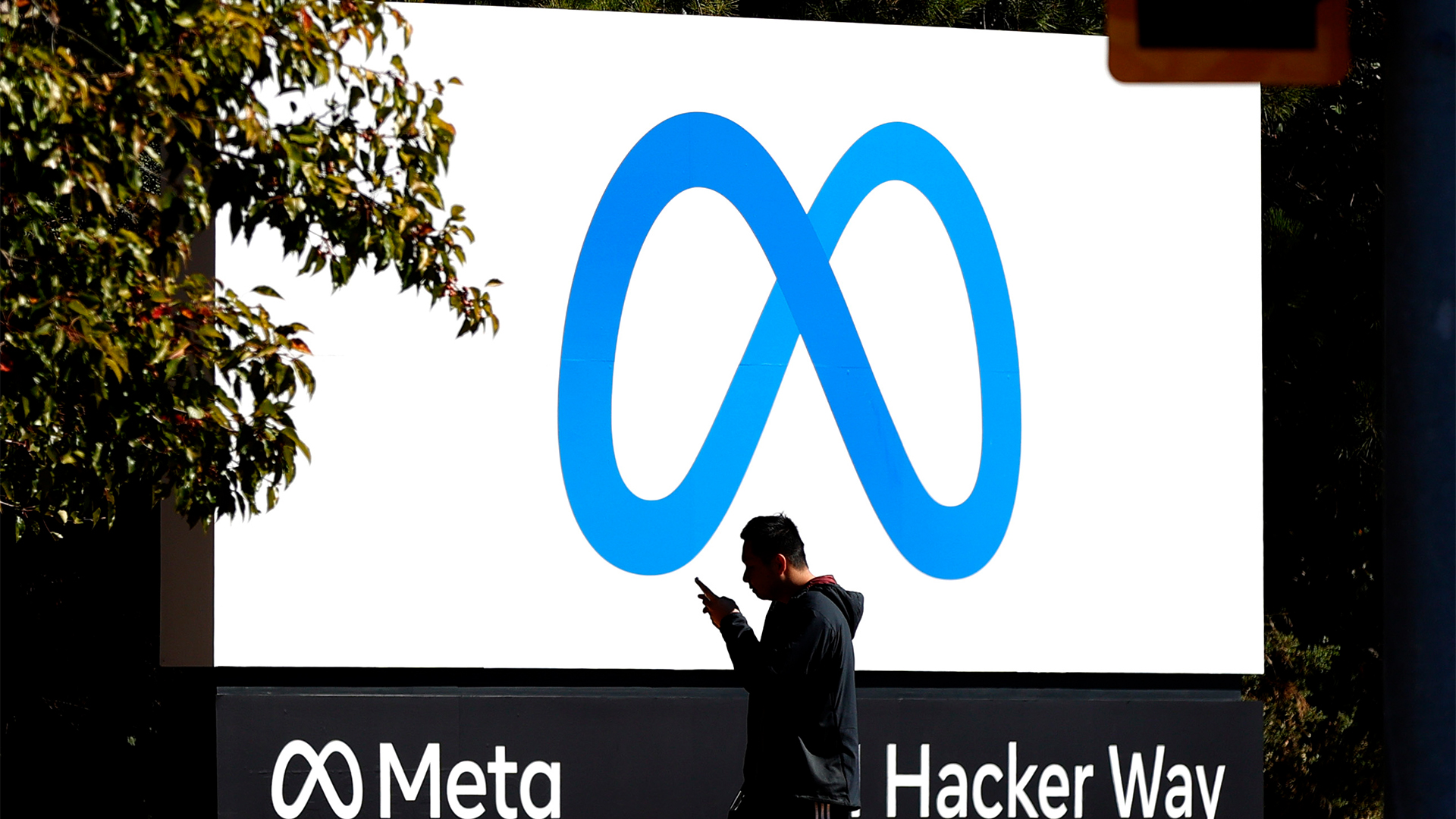Why is Meta still funding the metaverse?
VR hype seemed to evaporate as fast as it arrived. Has the money Meta has sunk into it folly, or part of a larger strategy that's yet to bear fruit?


Sign up today and you will receive a free copy of our Future Focus 2025 report - the leading guidance on AI, cybersecurity and other IT challenges as per 700+ senior executives
You are now subscribed
Your newsletter sign-up was successful
You'd be forgiven for thinking virtual reality (VR) has gone the way of 3D TV, NFTs or Second Life, other technologies that had us talking during all-encompassing hype cycles but which are barely mentioned a few years later (if they still exist at all – see Google Glass).
Just a couple of years ago, the new generation of VR was everywhere. Magic Leap raised $2.6bn but has yet to release a world-beating product. Apple Vision Pro (costing as much as you'd pay for a decent secondhand hatchback) never caught on.
But Facebook sent the loudest signal to the market, renaming itself 'Meta' to coincide with its investment in its own metaverse VR platform, Horizon Worlds.
After launching in 2022 with a reported 300,000 monthly active users, Horizon Worlds was down to just 900 daily active users a year later, according to a YouTuber who spent a month making informal calculations.
In the meantime, generative AI became the new game in town and Meta is pouring just as much money into it as other big tech firms. The social media giant is planning a 5GW data center for AI and recently announced a push toward “personal superintelligence” backed by between $64 and $72 billion in capital expenditure.
But amid the AI gold rush, Meta is still quietly pouring money Reality Labs, its metaverse-building division that also oversees its Quest VR headsets and Ray-Ban smart glasses. Since 2020, the company has reported a cumulative $68.58 billion in losses at the division, with a $4.53 billion loss in just the second quarter of this year. Over the same period, the division brought in just $370 million in sales.
Is the new age of VR already over?
Sign up today and you will receive a free copy of our Future Focus 2025 report - the leading guidance on AI, cybersecurity and other IT challenges as per 700+ senior executives
The long game
After so many splashy product and platform releases and media attention, as well as a few mirthful scandals about metaverse avatars getting legs, we seemed to have abandoned all talk of VR in favour of a AI.
But before you decide Meta has hitched its wagon to the wrong train, consider that the smart glasses it made with Ray Ban sold a million units across the EMEA region, per Reuters.
The company also has a plan to make extended reality for the US military, with wearable sensors letting soldiers spot far-away threats with augmented reality (AR).
Are such ventures just luck, or does Zuckerberg and co have a long term plan? Opinions vary, and they do so depending on which facet of the VR business you're asking about. Pew Research said only 17% of US adults used a VR headset in 2023 – so it seems Meta has a long way to go in this regard.
"That's stagnation, not scale. Meta keeps mistaking developer fascination for user demand," says Meyr Aviv, founder and CEO of iMoving.
Simplice Fosso, digital transformation expert at Axis Intelligence, says Meta learned a lesson from dropping the ball on mobile, a sector it lost to Apple, Android, and Samsung. "They're not just building headsets, they're creating the infrastructure for the next computing paradigm."
He adds that the entry of competitors proves a technology's bona fides and validates the market. "Apple's Vision Pro entry, Google's Android XR announcement and Samsung's Project Moohan signal industry consensus that spatial computing is inevitable."
"Demand is niche but growing, especially in behavior-shifting markets," says Ela Iliesi, digital strategy and behavior consultant and founder of MAKE IT Academy. "Recent search data for 'AI glasses' shows a 20% year on year growth, and some countries show extremely high mobile usage and social-first discovery behavior, which make them perfect launch environments for immersive, wearable computing that merges AI, messaging, and content delivery."
Ilesi adds that even though we're not still talking about Meta's VR investment, it reflects the company's long-term bet on shifting global attention patterns and a coming dominance of immersive platforms within the workplace and as a commerce channel.
"I see Meta targeting a future where attention is platform-bound, not screen-bound," she added. "It's quietly laying the groundwork for post-search digital behavior. As AI search shrinks surface-level traffic and zero-click results rise, VR/AR becomes not just a novelty but a future distribution channel for content, commerce, and communication."
In fact, Ilesi likens it to Google's early investment in Android, one intended to put itself where the consumer was going to be in years hence rather than chase a short term ROI. "The early financials look bleak, but Meta is positioning itself for when interface equals identity, and digital behavior becomes embodied."
Cahyo Subroto, founder of data extraction provider MrScraper agrees, saying we should look at Meta's actions as a long term hardware play to control the next interface layer.
"[It's not] just about building a virtual world but making sure Meta isn't dependent on someone else's hardware stack when the next computing shift arrives," he says. "Whether that's immersive headsets or AI glasses, they're buying a seat at the table for the next era of user interaction, because whoever owns the interface owns the data, and whoever owns the data wins the platform."
And despite how few businesses are actually still buying VR headsets, Fosso explains that sheer market position justifies the eye watering cost Meta has sunk into Reality Labs, an amount it can afford to lose today to own tomorrow.
"Meta commands 77% of the global VR market and 84% in Q4 2024 alone," he says. "When you control three-quarters of an emerging market, losing $4.2 billion quarterly becomes a strategic moat investment rather than a failure. Sustained losses can prevent competitors from gaining a foothold."
Counting down to demand
All of which sounds great if you're a long term Meta shareholder, but will customers ever start taking up VR hardware or services in enough numbers? Will anything else return such sky-high investment any time soon? As one respondent to this story described it, mainstream demand is 'lukewarm'.
To Subroto, we haven't seen the breakthrough moment that drives mass enterprise pull. "Most of what's out now still feels like more of a demo and not a necessity,” he explains. “I think the bigger problem is the gap between ambition and infrastructure. AI-native wearables need more than great optics. They need fast, reliable data sync, edge AI models that can run locally, battery efficiency, and a real privacy story. That's where Meta still feels early."
Crucially, he adds that Meta's tools and platforms aren't anywhere near enough to dislodge the killer apps of the interface layer we have now – handheld devices. Anything Meta expects to become essential needs to be seamless enough to replace our phones or tablets or add something compelling they can't do.
But depending on where you look, we actually have small examples of that happening – or at least starting. Meta's smart glasses revenue tripled last year, per CNBC, with four times more active users than in 2023. "This proves their AR strategy is working," Fosso says. "The glasses represent a $60 billion bridge investment to eventually reach mainstream AR adoption."
And even though every other tech headline now is about AI instead of VR, we can't forget how closely they'll work together – and thus how much AI might facilitate the VR age it feels like we've bypassed.
Fosso thinks AI integration changes everything. "Meta's massive AI investments aren't separate from Reality Labs, they're converging," he said. "AI-powered avatars, real-time translation and contextual assistance will make virtual and augmented reality essential rather than experimental."
For now, Meta is quietly beavering away in the background. It hasn’t given any major updates to its metaverse platform strategy in a few years now, but even though we're not talking about it much anymore, we discount them – and VR as a whole – at our peril.

Drew Turney is a freelance journalist who has been working in the industry for more than 25 years. He has written on a range of topics including technology, film, science, and publishing.
At ITPro, Drew has written on the topics of smart manufacturing, cyber security certifications, computing degrees, data analytics, and mixed reality technologies.
Since 1995, Drew has written for publications including MacWorld, PCMag, io9, Variety, Empire, GQ, and the Daily Telegraph. In all, he has contributed to more than 150 titles. He is an experienced interviewer, features writer, and media reviewer with a strong background in scientific knowledge.
-
 AWS CEO Matt Garman isn’t convinced AI spells the end of the software industry
AWS CEO Matt Garman isn’t convinced AI spells the end of the software industryNews Software stocks have taken a beating in recent weeks, but AWS CEO Matt Garman has joined Nvidia's Jensen Huang and Databricks CEO Ali Ghodsi in pouring cold water on the AI-fueled hysteria.
-
 Deepfake business risks are growing
Deepfake business risks are growingIn-depth As the risk of being targeted by deepfakes increases, what should businesses be looking out for?
-
 Microsoft’s huge AI spending still has investors sweating despite solid cloud growth
Microsoft’s huge AI spending still has investors sweating despite solid cloud growthNews Capital spending at Microsoft continues to surge, despite previous claims it would cool down
-
 Meta isn’t playing ball with the EU on the AI Act
Meta isn’t playing ball with the EU on the AI ActNews Europe is 'heading down the wrong path on AI', according to Meta, with the company accusing the EU of overreach
-
 Apple, Meta hit back at EU after landmark DMA fines
Apple, Meta hit back at EU after landmark DMA finesNews The European Commission has issued its first penalties under the EU Digital Markets Act (DMA), fining Apple €500 million and Meta €200m.
-
 ‘Europe could do it, but it's chosen not to do it’: Eric Schmidt thinks EU regulation will stifle AI innovation – but Britain has a huge opportunity
‘Europe could do it, but it's chosen not to do it’: Eric Schmidt thinks EU regulation will stifle AI innovation – but Britain has a huge opportunityNews Former Google CEO Eric Schmidt believes EU AI regulation is hampering innovation in the region and placing enterprises at a disadvantage.
-
 Want to call yourself a real tech company? Mark Zuckerberg says get a technical CEO
Want to call yourself a real tech company? Mark Zuckerberg says get a technical CEONews Firms without enough technical representation can’t truly call themselves tech companies, according to Mark Zuckerberg
-
 Meta layoffs hit staff at WhatsApp, Instagram, and Reality Labs divisions
Meta layoffs hit staff at WhatsApp, Instagram, and Reality Labs divisionsNews The 'year of efficiency' for Mark Zuckerberg continues as Meta layoffs affect staff in key business units
-
 WhatsApp Business prices are set to change – here's what you need to know
WhatsApp Business prices are set to change – here's what you need to knowNews This is the first rate change for WhatsApp Business users since it adopted category-based pricing over a year ago
-
 Meta's Workplace productivity platform was always destined to fail
Meta's Workplace productivity platform was always destined to failOpinion Meta’s attempts to dabble in the workplace productivity software space have fallen flat amidst a sharpened focus on AI